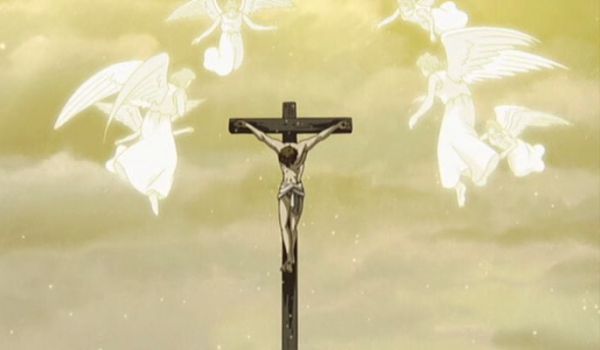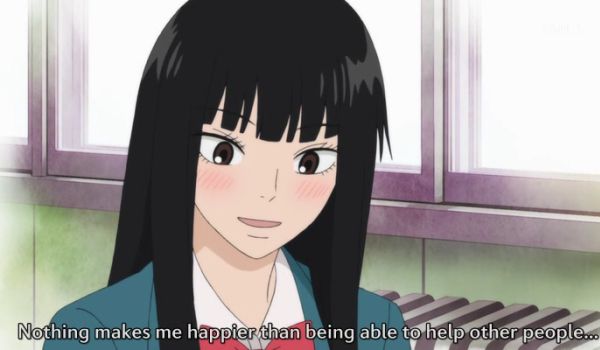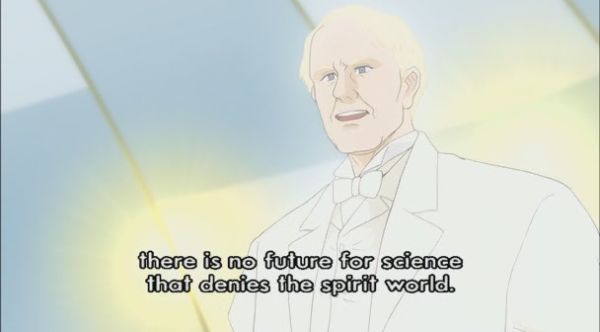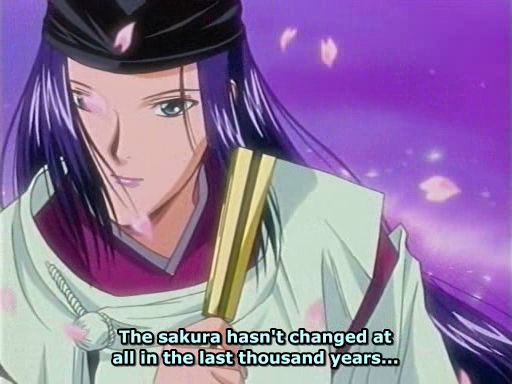If only he had listened to Ryuho Okawa, this would not have happened.
OK, this is bound to have a VERY narrow reader base. But I just finished my re-read ofThe Laws of Eternity today so it is fresh in my mind.
On that note, I am pleased to find that re-reading the book after several months was a whole new experience. While I won’t exactly say that I had forgotten everything or even most of it, the details had faded into a vague background information, which actually made the book more interesting the second time around.
While the religious organization Happy Science (in Japanese Kofuku-no-Kagaku meaning “Science of Happiness”) has a lot in common with Christianity, it can not with any stretch of words be said to be a Christian sect. It combines Christianity and Buddhism, with some influence from other religions and philosophies, but it is mostly rooted in Buddhism, as can be expected since Shakyamuni Buddha and Ryuho Okawa are each supposed to be 1/5 of the religion’s main deity, El Cantare. Despite this, Jesus Christ is accorded a very high place by non-Christian standards. One gets the distinct impression that Christ and Okawa are best friends since at least when the dinosaurs were young, if not before.
That said, the christology – the teaching about Christ – is what most of all sets the new religion apart from Christianity. When it comes to ethics they are strikingly similar, and the religion’s teaching about the afterlife and much of the spirit world is fairly similar to mainstream Christianity. Admittedly the concept of Hell in Buddhism comes closer to the Catholic concept of Purgatory, not the Final Solution to the Sinner Problem that the Christian Hell is supposed to be. But the various Hells are vaguely similar to those of Dante, and the heavens are quite familiar. Jesus Christ is also fairly familiar – but in the end, there are a few differences that just cannot be reconciled.
Most notably, Jesus is not unique. In Happy Science, a large number of planets are inhabited, and each of them has various spheres of spirit world surrounding them. Jesus lives in the 9th dimension, also called the cosmic dimension, so he is presumably able to communicate with other 9-dimensional spirits around the galaxy. He was already familiar with El Cantare before Earth was settled, after all. But his special role as savior and source of love is for this planet only. Other planets have their own saviors as needed.
Furthermore, even on Earth there are 10 cosmic spirits in the 9th dimension, of which El Cantare is the leader. (No big surprise there, given who is writing the books.) It seems to be a fairly relaxed atmosphere among these saviors, except for some palpable tension between Enlil and El Cantare, but El Cantare is a bit more than “first among equals”. He still shares the same dimension as the rest of them though. It is strongly implied that Jesus is the second in command, so to speak, and actually said to be in charge of the heavens while El Cantare is partially incarnated in the 3-dimensional world. (One should bear in mind that 80% of El Cantare is still up there, though.)
As for Jesus being God’s son, that is not a big deal in a worldview where every living thing (and then some) is a child of God. The primordial God (or primordial Buddha, depending on the audience) is unimaginably far above the created universe, but still every person has a small core of divine nature. There is no need for Jesus to give people this divine nature, it was invested at the moment of creation, according to Happy Science. (They do not refer to the episode where Jesus tells the pharisees that the Kingdom of Heaven is inside them, a very strange claim giving that he spoke to people who violently rejected him. Some later readers have concluded that Jesus could not possibly mean that, and must have meant that the Kingdom was “among” them instead. But in the Buddhist worldview, Jesus’ words are trivially obvious.)
So while Jesus is still the incarnation of Love and still a Savior, he is certainly no longer God’s only begotten Son and he does not have all power in Heaven and on Earth. If you believe Happy Science and its leader Ryuho Okawa. Which means no Christian is ever going to believe him, at least in this regard.
As for the historic Jesus, this part is treated in The Golden Laws and is also a bit different, though not all that much. The virgin birth is written off as a mythunderstanding, while on the other hand Jesus was originally called Immanuel (as per the prophecy) and later changed name to Jesus (perhaps like Ryuho Okawa who originally was named Nakagawa Takashi, according to Wikipedia.) Most of the extra stuff is placed in the “hidden years” from Jesus was 12 till he was 30. Supposedly he spent some time in Egypt, possibly instead of his babyhood detour there. After all, it was prophesied that he would be called from Egypt, which makes somewhat more sense if he was old enough to realize his calling at the time. Supposedly he later went to India and studied spiritual concentration and miracles. He also studied the Persian religion of dualism. By the time he was 30, he had a very thorough education in several of the world religions. (Incidentally, 30 was also the age when Ryuho Okawa began his great mission to save humankind. By then Jesus had already spoken to him many times. But back when Jesus was incarnate, it was the other way around – it was El Cantare who was mentoring him, in his aspect as Hermes.)
Hermes was not too happy about the whole cross thing. He would have preferred that Jesus had been more diplomatic and lived a long life teaching people, like Shakyamuni Buddha did. Having only a few years to get his message across was bound to cause vagueness in the doctrine and a splintering of the religion over time. But Jesus was adamant. No compromise, even in face of Calvary. Never compromise. And it turned out fairly well: Despite some internecine war, Christianity has become a world religion and its vagueness has actually made it easier for it to adapt to changing times and different cultures.
According to the Golden Laws movie, Jesus actually did call for Elijah when he was about to die on the cross, as onlookers reported according to the Gospel. (The Bible gives four different interpretations of his last words, none of which include Elijah, though one sounds similar.) Angels then came and escorted his spirit back to Heaven. The Catholic belief that Jesus went straight to Hell is anyway somewhat poorly founded in Scripture. The verse that says that he went in spirit and preached to the spirits who were incarcerated seems to place his visit there after the resurrection and make it a somewhat less depressing event. I don’t have any revelation either way. In the movie, Hermes is credited with resurrecting Jesus, rather than the Creator acting directly. I am pretty sure this is a view only held by Happy Science.
There is supposedly a whole book which Okawa wrote down that Jesus dictated to him, but it is (probably wisely) not translated into English. I suspect more differences to mainstream Christianity would be found there, but what do I know. In any case, I think I have proven beyond doubt that there is some conflict of interest between Christianity and Happy Science, despite striking similarity in ethics and sanctification.
And while I truly admire Master Okawa and find his books and speeches deeply inspirational, I can’t help but think that the world today is better than it would have been if Jesus had written 500 books and gone into politics. (Your Jesus may vary.)









